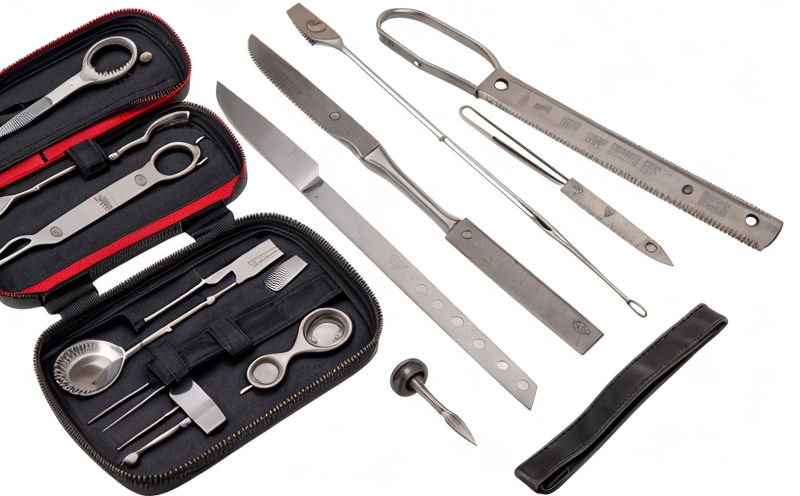ISO 7741 Needle Holder Locking Mechanism Testing
The ISO 7741 standard provides essential guidelines and requirements for the testing of needle holder locking mechanisms used in surgical instruments. This service ensures that these critical components meet stringent quality and safety standards, which is paramount in medical device manufacturing. Surgical instruments are designed to perform precise tasks during surgical procedures, and any failure in their locking mechanism can have severe consequences.
The locking mechanism ensures the secure attachment of needles to the instrument handle, preventing accidental detachment during use. This security is vital for both patient safety and the efficiency of the procedure. Compliance with ISO 7741 not only guarantees the reliability of these components but also ensures that they meet international standards recognized by healthcare professionals worldwide.
The testing process involves a series of steps to assess various aspects of the locking mechanism, including:
- Strength and durability under static loads
- Repeatability in multiple attachment cycles
- Durability over time with cyclic loading
- Effectiveness during sterilization processes
These tests are conducted using high-precision instruments that simulate real-world conditions as closely as possible. The testing process also includes visual inspections to ensure there are no visible defects or signs of wear that could compromise the integrity of the locking mechanism.
The results of these tests provide critical insights into the performance and reliability of needle holder locking mechanisms, ensuring they meet the highest standards in the industry. This service is not only beneficial for manufacturers looking to comply with international regulations but also for healthcare providers aiming to maintain a high standard of care.
Benefits
The ISO 7741 Needle Holder Locking Mechanism Testing provides several key benefits:
Ensures compliance with international standards, which is essential for regulatory approval and market access.
Reduces the risk of malfunctions during surgical procedures, thereby enhancing patient safety.
Improves product quality by identifying potential weaknesses in design or manufacturing processes early on.
Saves costs associated with recalls and warranty claims due to defects discovered post-market release.
In summary, this testing service is crucial for maintaining the highest standards of medical device quality and safety, ensuring that surgical instruments perform reliably under all expected conditions.
Why Choose This Test
The ISO 7741 standard ensures that needle holder locking mechanisms are rigorously tested to meet international quality and safety standards.
Compliance with this standard is a requirement for many medical device manufacturers, especially those operating globally.
This testing service provides detailed insights into the performance of locking mechanisms under various conditions, ensuring reliable operation in real-world scenarios.
The results of these tests are recognized by regulatory bodies and can be used to demonstrate compliance during audits or inspections.
By choosing this test, you ensure that your products meet the highest standards of quality and safety, thereby enhancing patient trust and satisfaction. This service also helps in maintaining a competitive edge in the market by ensuring consistent product performance across different batches and manufacturing runs.
Customer Impact and Satisfaction
The ISO 7741 Needle Holder Locking Mechanism Testing has significant impacts on both customers and end-users. For healthcare providers, reliable surgical instruments mean fewer incidents of malfunctions during procedures, which translates to better patient outcomes and greater confidence in the medical devices they use.
Reduces the risk of infections due to improper needle attachment or detachment.
Saves time by minimizing the need for troubleshooting and repairs after a procedure.
Improves patient trust, which is essential for maintaining long-term relationships between healthcare providers and their patients.
For manufacturers, compliance with ISO 7741 ensures that they meet regulatory requirements and can enter new markets more easily. This service also helps in identifying potential issues early on, allowing for corrective actions to be taken before products reach the market.
The testing process is designed to provide detailed reports that outline any areas of concern or improvement opportunities. These insights are invaluable for R&D teams looking to innovate and improve product designs. Additionally, the results of these tests can be used in marketing materials to highlight the quality and safety of your products, enhancing brand reputation.





